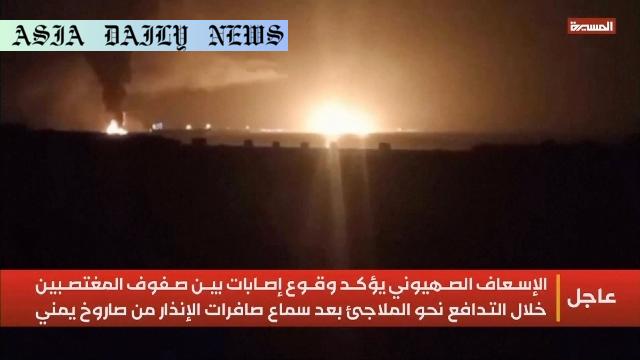Houthi rebels targeted as US airstrikes on Yemeni port kill 40, wound over 100. Claims of fuel smuggling spark debate.
- US airstrikes in a Houthi-controlled Yemeni port killed 40 and wounded over 100.
- The US accuses Houthis of using the port for fuel smuggling and financial embezzlement.
- Tensions rise as Israel intercepts Houthi-fired missiles and US criticizes Chinese support for satellite aid.

Introduction to the Conflict in Yemen
Yemen has been a battleground of conflicting interests and devastating violence for years. It is home to one of the most severe humanitarian crises globally. A recent development further elevates the tension: US airstrikes on a Houthi-controlled port resulted in 40 fatalities and over 100 injuries. Targeting the Iranian-backed Houthis, the US claims the port facilitated illicit activities, including fuel smuggling and misuse of revenues. These arguments have been met with both support and criticism from the international community.
Details of the Houthi-Controlled Port Strike
The US Central Command announced its airstrike campaign on a Yemeni port under Houthi control on Thursday. According to US officials, this port has been a hotspot for unethical activities, including smuggling and revenue embezzlement, empowering the Houthis to finance their actions. However, this operation has raised questions regarding civilian tolls and broader consequences for the fragile state of Yemen. Local sources have reported significant casualties, reinforcing fears of aggravating an already dire humanitarian crisis in the region.
Regional Reactions and Escalations
Amidst the bombardment, Israel confirmed the interception of a missile launched from Yemen, reportedly by the Houthi group. Such events indicate the growing influence and reach of Houthi forces, whose advanced weaponry has garnered international attention. The US also aired grievances against China for allegedly enabling a firm to provide satellite imagery to the Houthis, which they believe aids in carrying out attacks on American interests in the Middle East.
Broader Implications of the Strike
Operations like the one on the Houthi-controlled port reflect a pattern of interventions aimed at combating non-state actors. This latest strike invites broader reflections on the balance between curbing insurgent powers and avoiding the exacerbation of human suffering. Critics have demanded greater transparency, fearing civilian casualties and pointing to the fact that Yemen remains in desperate need of peace negotiations, not escalations.
Conclusion: What Lies Ahead?
The attack on the port, one of many tragedies within Yemen’s borders, reflects a complex web of geopolitical interests. While the US seeks to safeguard its interests and those of its regional allies, the lives of civilians caught in crossfire continue to bear the strain of international chess. Moving forward, stakeholders need to explore pathways for diplomatic discussions to achieve stability in the region. Additionally, greater oversight of foreign entities accused of involvement, such as the Chinese firm allegedly supporting the Houthis, may play a critical role in influencing future developments.



Commentary
The Perils of Intervention: Reflecting on US Airstrikes in Yemen
The recent US airstrikes on a Houthi-controlled port stand as yet another grim reminder of the entrenched conflict in Yemen, a nation torn apart by years of war and foreign interference. While the US justifies its actions as efforts to curb illegal smuggling and revenue appropriation by the Houthis, the human cost of these interventions is undeniable. Forty people have lost their lives, and more than a hundred have been injured in what activists and observers fear might fuel further retaliation and instability.
The Fragility of Yemen’s Humanitarian Crisis
Yemen is already in the grip of a catastrophic humanitarian crisis, with millions suffering from lack of food, water, and healthcare. Strikes like these, targeted or not, often have collateral consequences that exacerbate the plight of displaced communities. When such operations are undertaken, it raises fundamental questions about their impact on peacebuilding efforts in a region already teetering on the brink of collapse.
The Role of Regional and Global Diplomacy
In the backdrop of the strikes, broader geopolitical dynamics come into play. The interception of Houthi-fired missiles by Israel underscores the group’s growing military capabilities and the alarming scale of indirect conflicts stretching beyond Yemeni borders. Furthermore, the US criticism of China adds another layer to the complex interplay of global powers. While it remains unclear whether this Chinese aid directly influenced Houthi actions, these allegations point to a need for stronger global accountability, especially in conflict zones where weapons and technology serve as catalysts for violence.
The Path Forward
As Yemen becomes a battleground for international conflicts, the possibility of dialogue shrinks. It is vital for global players to prioritize humanitarian concerns and foster negotiations aimed at easing the suffering of ordinary Yemenis. A prolonged cycle of violence will only worsen the existing crisis, prevent meaningful reconstruction efforts, and deepen mistrust between nations involved.